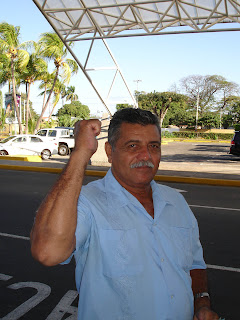Since arriving home, I’ve been oh-so-effective-and-efficient:
- Unpack van. Check.
- Listen to phone messages. Respond. Check.
- Start laundry. Check.
- Assess food supplies. Start a pot of soup. Check.
- Buy groceries. Check.
- Sort an 18-inch stack of mail. Check. . .
It’s mid-afternoon Satuday. The suitcases are stowed, the groceries shelved, the laundry hung. Each room is in order, except my office. It is cluttered with trip memorabilia, receipts, sorted mail, and 10 book manuscripts asking for evaluation.
Poised above the clutter sits the shelf I blogged about yesterday with its owls, serenity prayer, and Nicaragua fabric.
I enter, prepared to attack.
I pause.
I remember.
And instead, I turn my back. . .
Notebook in hand, I’m lounging in a hammock in our backyard gazebo. The winter sun has warmed it to a cozy 70 degrees.
And when I put down this pen, I shall pick up a book from the dropleaf table next to me, and I shall read. Perhaps I’ll fall asleep.
Born a North American Calvinist, I have long known the value of a list.
A recently adopted Nicaraguan, I am still learning the value of a hammock.
-----
 PS while uploading: I didn’t fall asleep. But when I stopped reading, the burr oak branches and blue winter sky rained down peace.
PS while uploading: I didn’t fall asleep. But when I stopped reading, the burr oak branches and blue winter sky rained down peace.






